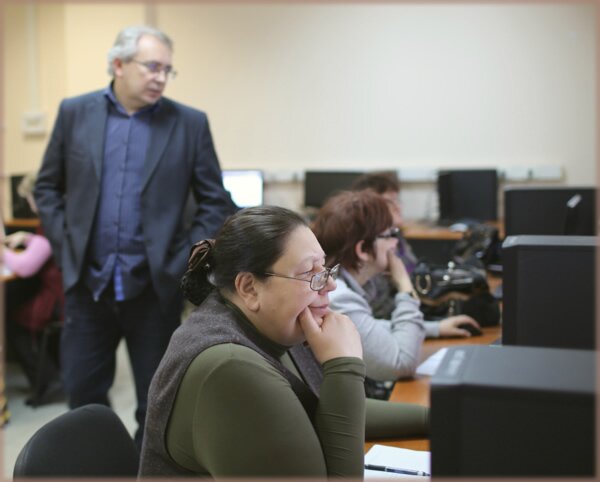 Culturally responsive educational systems rely on the supposition that culturally diverse students with foreign mother tongue can succeed in studying. To help students excel in academic performance educators and teachers should be versed in culturally responsive response to intervention to be able to provide high-quality opportunities to study in inclusive settings for all students, including ones with culturally and linguistically diverse backgrounds. Culturally responsive RTI frameworks have the potential to help solve the problem of disproportionate representation for diverse students in classes. Teachers are provided access to curriculum and instructional practice that are based on considering the important role of culture in teaching and learning to ensure positive results of special education programs. However educators and instructors require some additional professional training to master the basic principles and methods of culturally responsive RTI. The objective of such training is to ensure that general education provides equal high quality learning opportunities for all students regardless their cultural and linguistic diversity. The training program should include methods of assessing student progress as well as ensuring culturally responsive student support. Participants will also learn how to design interventions for their own pedagogy that take into consideration the role of culture in the teaching and learning processes.
Culturally responsive educational systems rely on the supposition that culturally diverse students with foreign mother tongue can succeed in studying. To help students excel in academic performance educators and teachers should be versed in culturally responsive response to intervention to be able to provide high-quality opportunities to study in inclusive settings for all students, including ones with culturally and linguistically diverse backgrounds. Culturally responsive RTI frameworks have the potential to help solve the problem of disproportionate representation for diverse students in classes. Teachers are provided access to curriculum and instructional practice that are based on considering the important role of culture in teaching and learning to ensure positive results of special education programs. However educators and instructors require some additional professional training to master the basic principles and methods of culturally responsive RTI. The objective of such training is to ensure that general education provides equal high quality learning opportunities for all students regardless their cultural and linguistic diversity. The training program should include methods of assessing student progress as well as ensuring culturally responsive student support. Participants will also learn how to design interventions for their own pedagogy that take into consideration the role of culture in the teaching and learning processes.
Response to Intervention as a Culturally Responsive Framework
 Culturally responsive educational systems rely on the supposition that culturally diverse students with foreign mother tongue can succeed in studying. To help students excel in academic performance educators and teachers should be versed in culturally responsive response to intervention to be able to provide high-quality opportunities to study in inclusive settings for all students, including ones with culturally and linguistically diverse backgrounds. Culturally responsive RTI frameworks have the potential to help solve the problem of disproportionate representation for diverse students in classes. Teachers are provided access to curriculum and instructional practice that are based on considering the important role of culture in teaching and learning to ensure positive results of special education programs. However educators and instructors require some additional professional training to master the basic principles and methods of culturally responsive RTI. The objective of such training is to ensure that general education provides equal high quality learning opportunities for all students regardless their cultural and linguistic diversity. The training program should include methods of assessing student progress as well as ensuring culturally responsive student support. Participants will also learn how to design interventions for their own pedagogy that take into consideration the role of culture in the teaching and learning processes.
Culturally responsive educational systems rely on the supposition that culturally diverse students with foreign mother tongue can succeed in studying. To help students excel in academic performance educators and teachers should be versed in culturally responsive response to intervention to be able to provide high-quality opportunities to study in inclusive settings for all students, including ones with culturally and linguistically diverse backgrounds. Culturally responsive RTI frameworks have the potential to help solve the problem of disproportionate representation for diverse students in classes. Teachers are provided access to curriculum and instructional practice that are based on considering the important role of culture in teaching and learning to ensure positive results of special education programs. However educators and instructors require some additional professional training to master the basic principles and methods of culturally responsive RTI. The objective of such training is to ensure that general education provides equal high quality learning opportunities for all students regardless their cultural and linguistic diversity. The training program should include methods of assessing student progress as well as ensuring culturally responsive student support. Participants will also learn how to design interventions for their own pedagogy that take into consideration the role of culture in the teaching and learning processes.
©2018 nccrest.org